Abstract
A clinical medical librarian (CML) program in a large university-based teaching hospital setting is viewed by the majority of clinicians as education-oriented, with slightly fewer clinicians viewing it as patient care oriented. The CML service has been utilized for research purposes only when it is clear that case-relevant information can evolve into research intended to have "clinical" impact. This study reports the results of a questionnaire circulated among clinicians receiving CML support by a large medical school library. Results indicate that (1) the CML effected a change in information-seeking behavior by the clinicians--they obtained information that would not have been available to them if the CML had not been present in patient-management conferences; (2) relevancy of information provided by the CML was judged by the clinicians to be very high; (3) the accuracy of the CML's search, coupled with the rapidity of delivery, was found to be highly satisfactory; (4) acceptance of the CML within the patient care setting was acknowledged by the majority of clinicians, who contact the CML in-hospital and overwhelmingly prefer to do so; and (5) there was no statistically significant variation in the manner in which different medical specialties use the services of a CML. These findings justify implementation of a clinical medical librarian program, on a modified basis, as an additional service to already existing reference services offered by a large medical school library.
Full text
PDF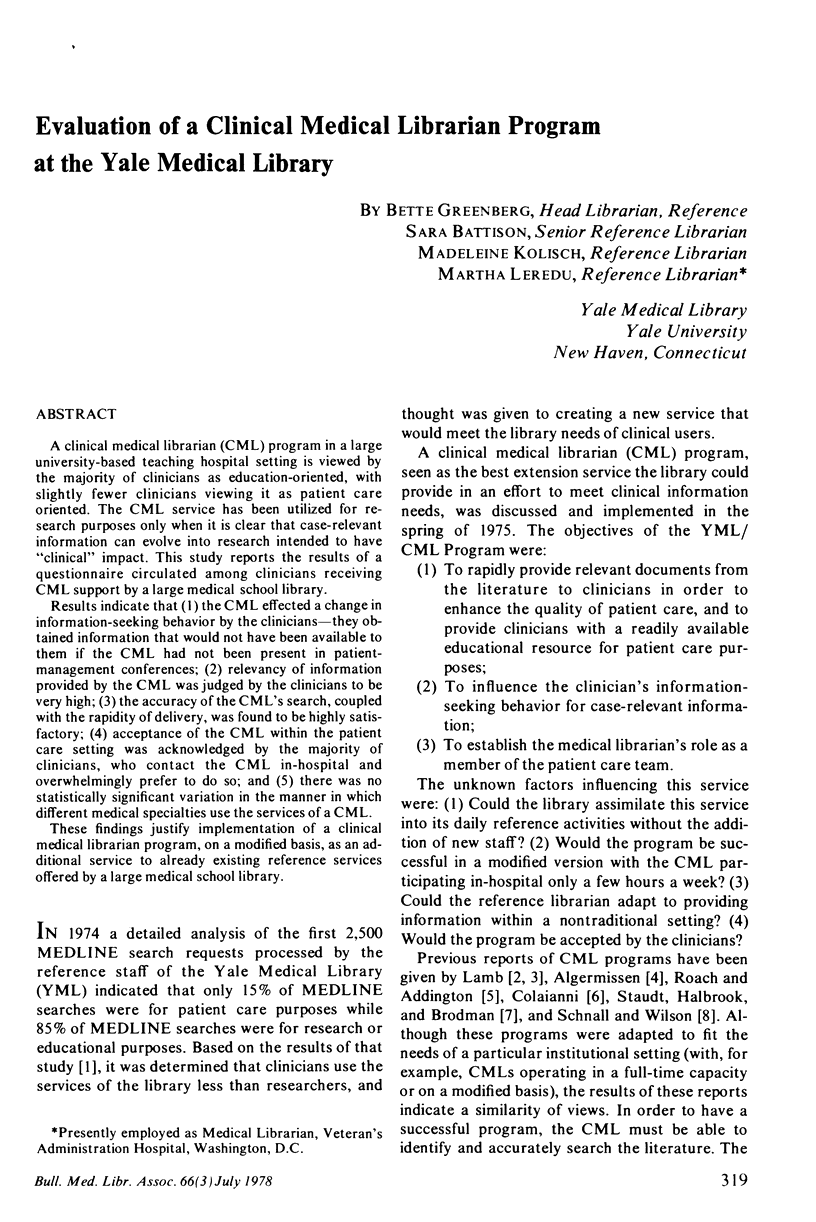
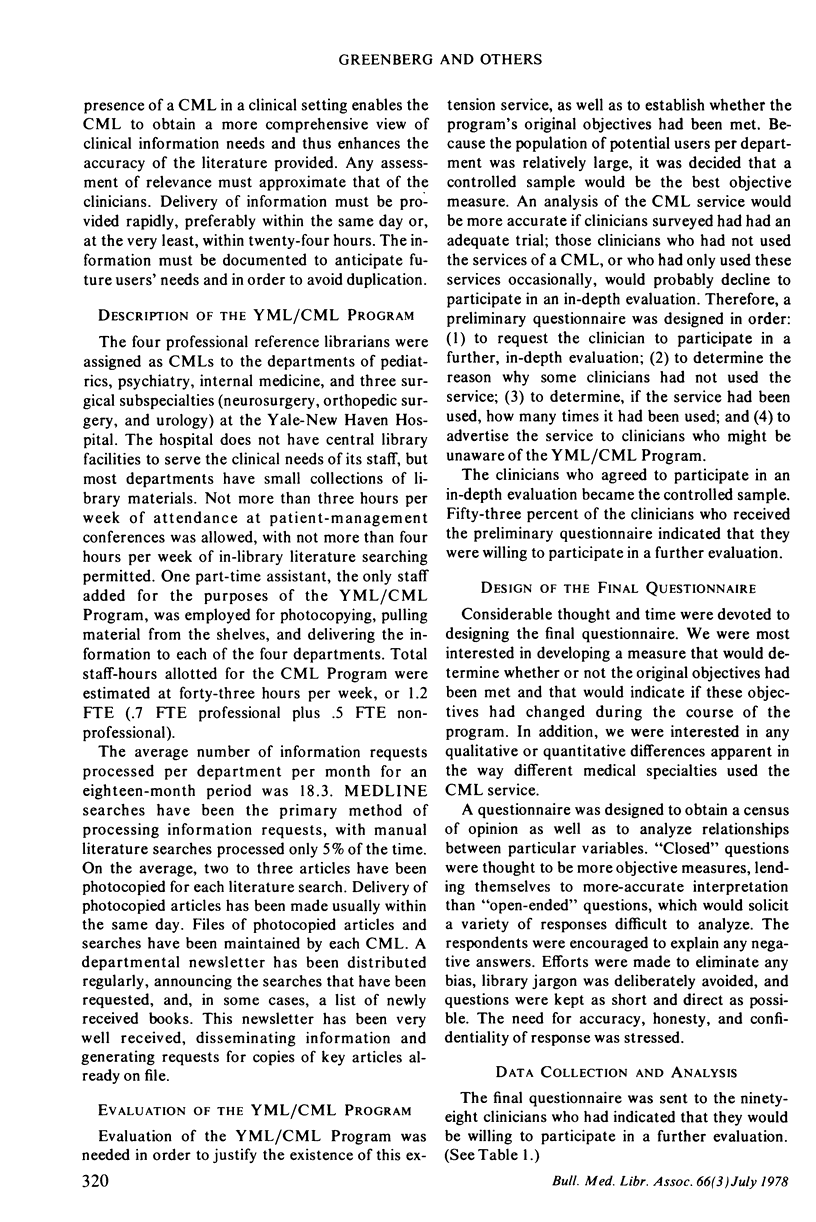
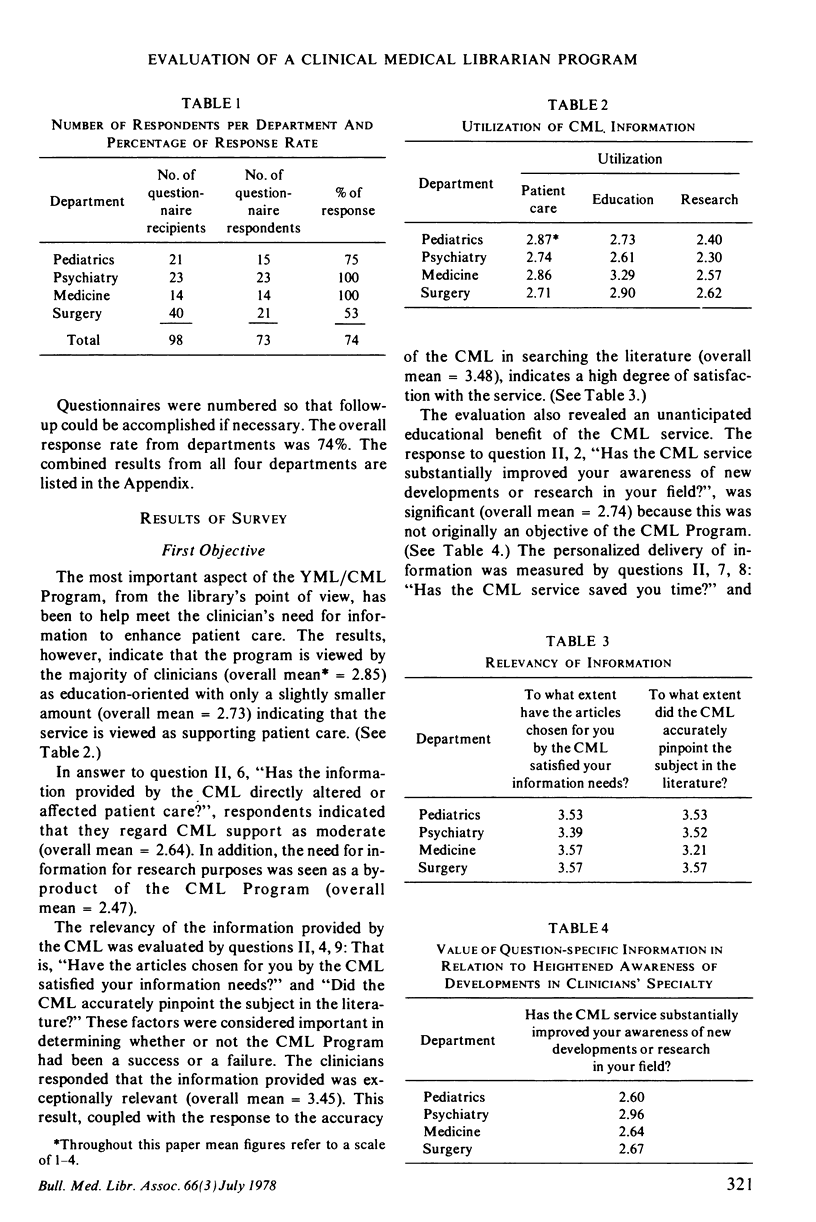
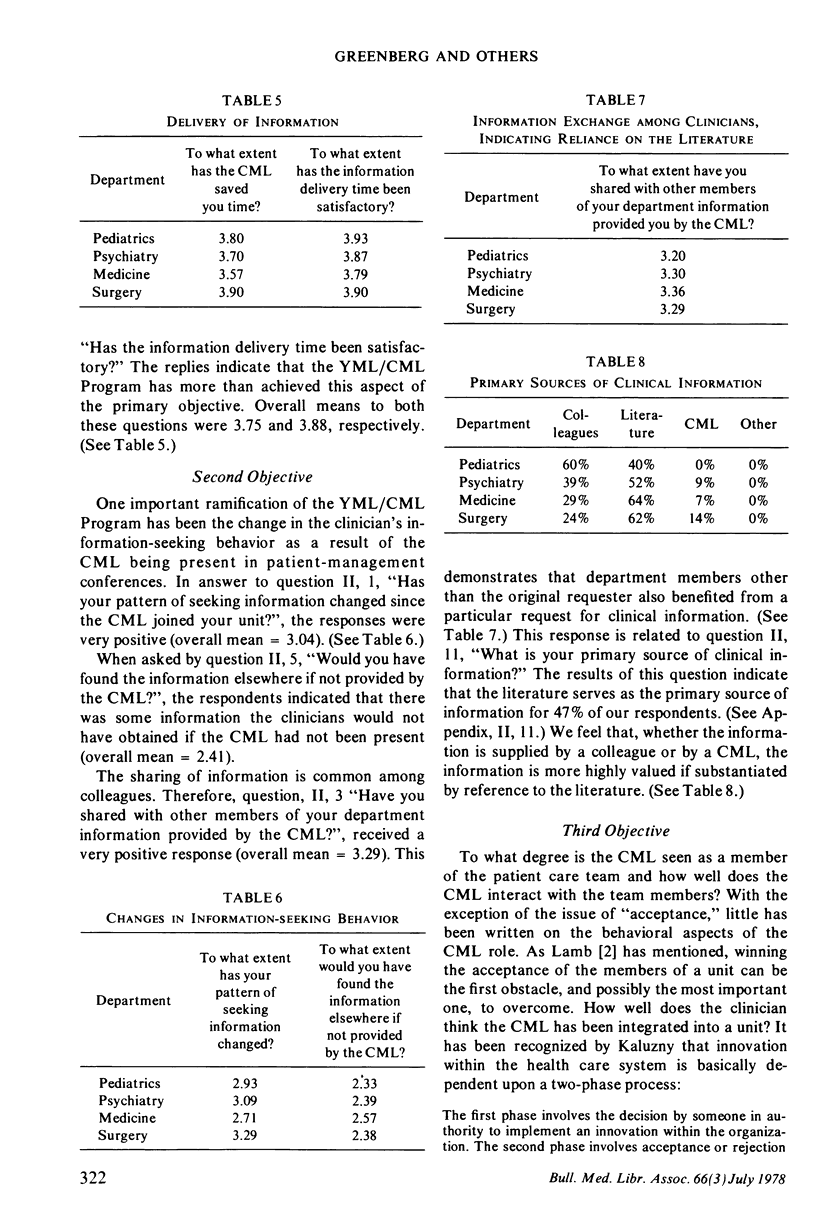
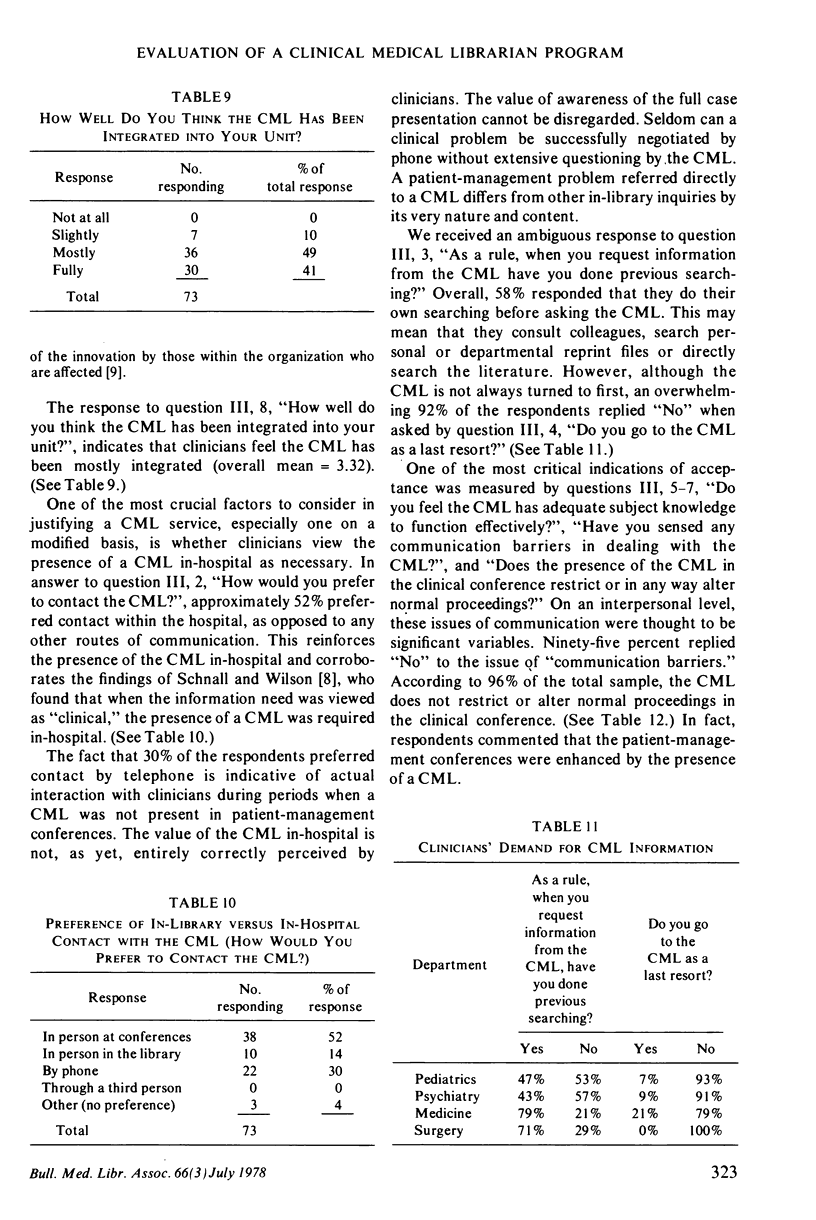
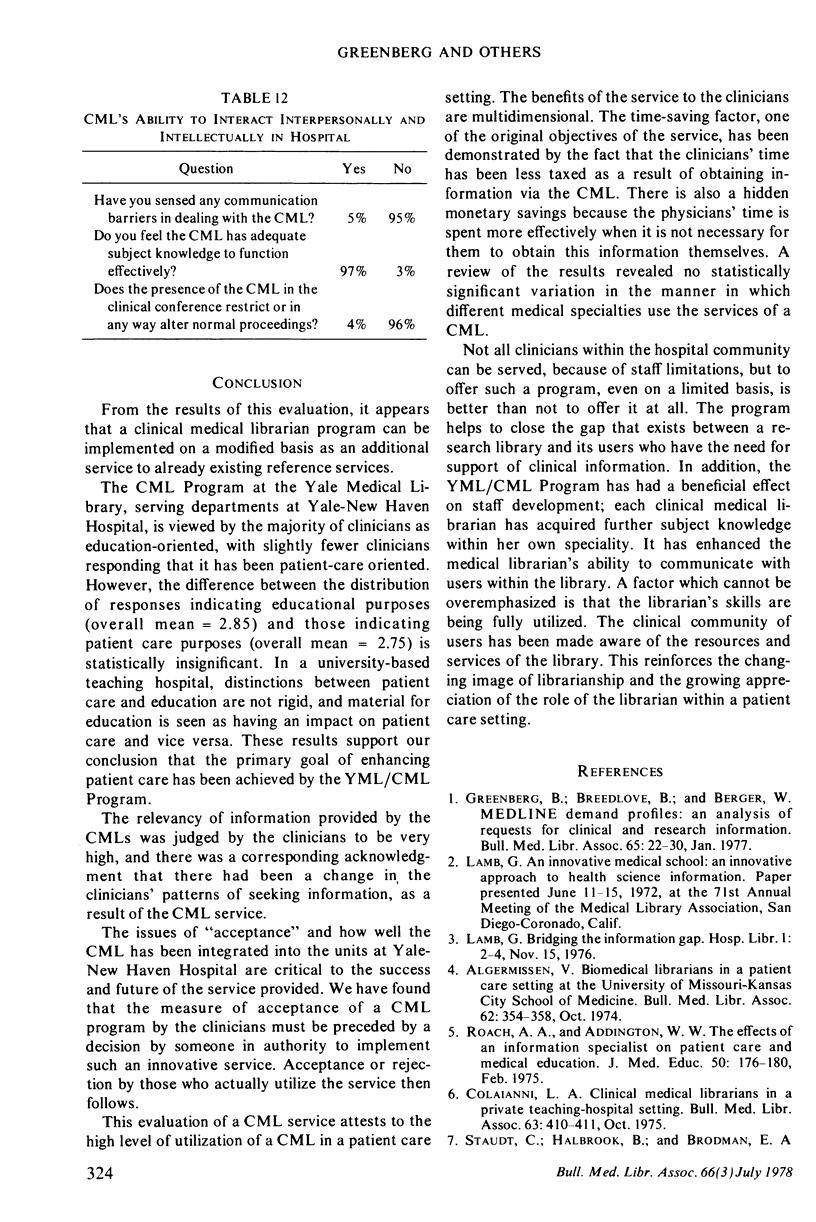
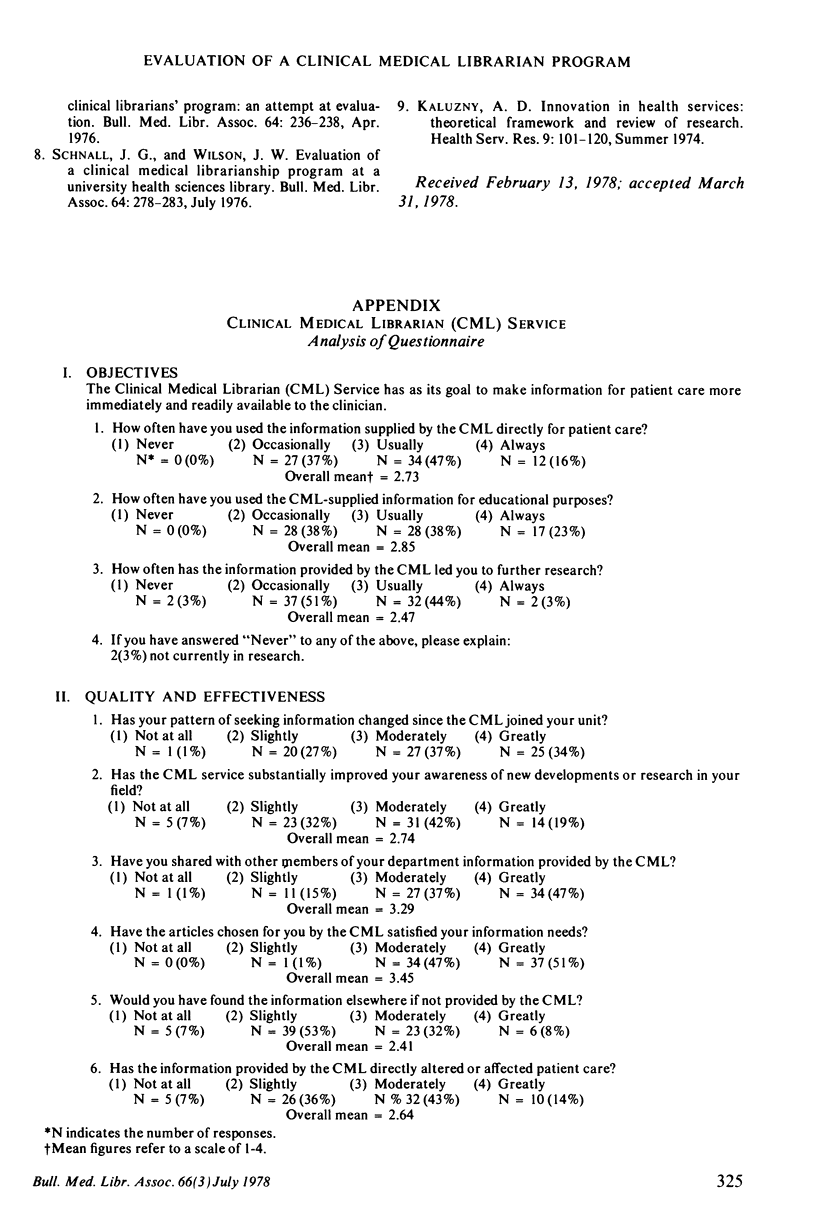
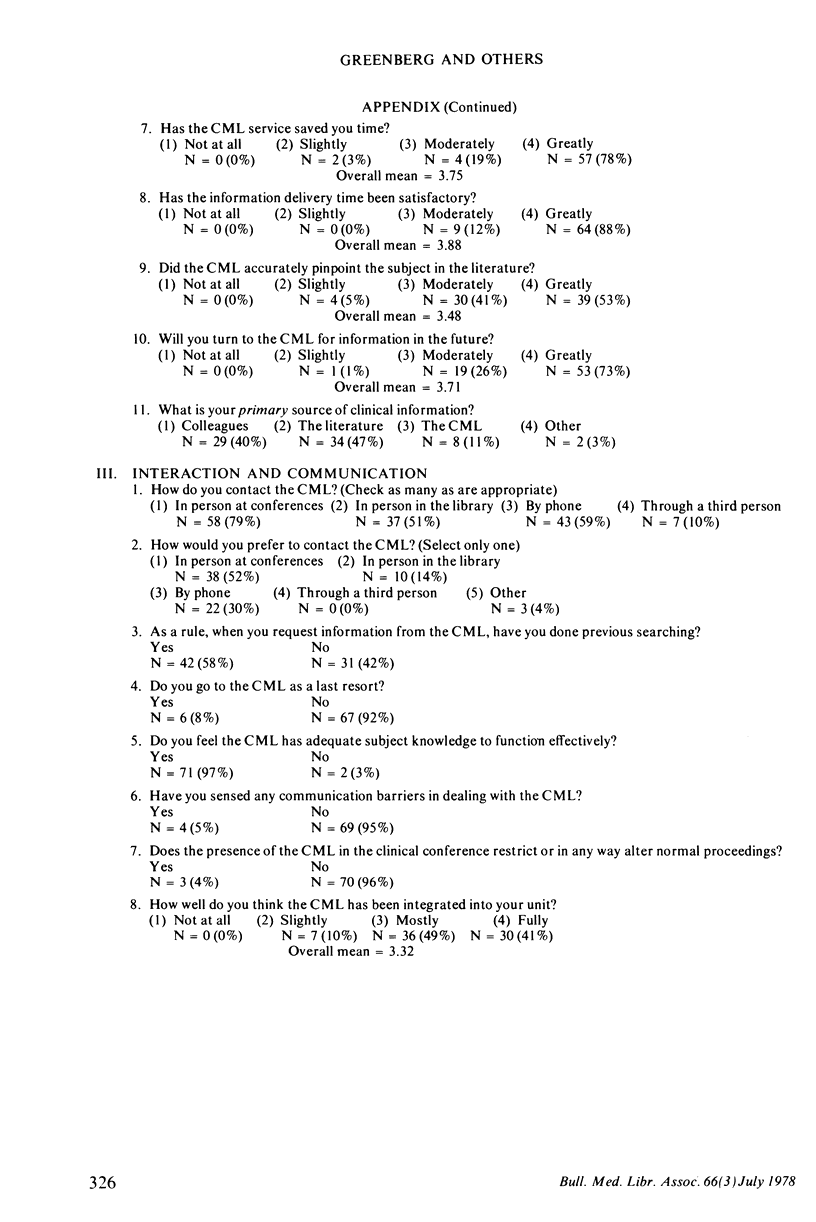
Selected References
These references are in PubMed. This may not be the complete list of references from this article.
- Algermissen V. Biomedical librarians in a patient care setting at the University of Missouri-Kansas City School of Medicine. Bull Med Libr Assoc. 1974 Oct;62(4):354–358. [PMC free article] [PubMed] [Google Scholar]
- Colaianni L. A. Clinical medical librarians in a private teaching-hospital setting. Bull Med Libr Assoc. 1975 Oct;63(4):410–411. [PMC free article] [PubMed] [Google Scholar]
- Greenberg B., Breedlove R., Berger W. MEDLINE demand profiles: an analysis of requests for clinical and research information. Bull Med Libr Assoc. 1977 Jan;65(1):22–30. [PMC free article] [PubMed] [Google Scholar]
- Kaluzny A. D. Innovation in health services: Theoretical framework and rewiew of research. Health Serv Res. 1974 Summer;9(2):101–120. [PMC free article] [PubMed] [Google Scholar]
- Lamb G. Bridging the information gap. Hosp Libr. 1976 Nov 15;1(10):2–4. [PubMed] [Google Scholar]
- Roach A. A., Addington W. W. The effects of an information specialist on patient care and medical education. J Med Educ. 1975 Feb;50(2):176–180. doi: 10.1097/00001888-197502000-00009. [DOI] [PubMed] [Google Scholar]
- Schnall J. G., Wilson J. W. Evaluation of a clinical medical librarianship program at a university Health Sciences Library. Bull Med Libr Assoc. 1976 Jul;64(3):278–283. [PMC free article] [PubMed] [Google Scholar]
- Staudt C., Halbrook B., Brodman E. A clinical librarians' program--an attempt at evaluation. Bull Med Libr Assoc. 1976 Apr;64(2):236–238. [PMC free article] [PubMed] [Google Scholar]


